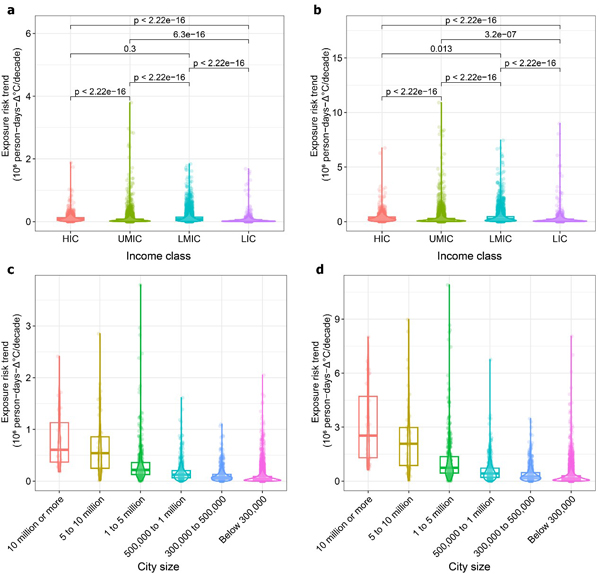Researchers Reveal Rising Compound Risk Inequality to Ageing and Extreme Heatwave Exposure in Global Cities
Extreme high-temperature events have been occurring more frequently in recent years due to climate change, increasing the risk of population exposure to extreme heat. Cities are particularly at a higher risk of heat stress, with the elderly being more susceptible during exposures. The combined effects of climate change, rapid urbanization, urban heat island effect, and ageing further intensify the inequality of global urban heat exposure risk.
Prof. CHEN Mingxing’s team at the Institute of Geographic Sciences and Natural Resources Research (IGSNRR) of the Chinese Academy of Sciences (CAS) revealed the rising compound risk inequality to ageing and extreme heatwave exposure of global cities under future scenarios. This work was published in npj Urban Sustainability.
The Researchers analyzed data from 27 Earth System Models simulated by the Coupled Model Intercomparison Project Phase 6 (CMIP6), combined with scenarios of Shared Socioeconomic Pathways (SSPs) and Representative Concentration Pathways (RCPs), and examined the spatiotemporal trend of future exposure risk across 9188 global urban settlements between 2020 and 2100 under the SSP2-4.5 and SSP5-8.5 scenarios. The results showed that urban heatwave exposure risk increases by 619% and 1740% for SSP2-4.5 and SSP5-8.5, respectively, and by 1642% to 5529% for the elderly.
They further assessed the contribution of effect of climate change, urbanization, and ageing, aiming to provide targeted urban climate change adaptation strategies for policymakers. The team highlighted that global cities are facing increasing risk of extreme heatwave exposure, particularly with middle- and low-income countries being vulnerable due to their rapidly ageing population.
“The regional intensity of exposure risk growth for elderly people in megacities of middle- and low-income countries is higher than that in high-income countries. Significant growth trend inequality of exposure risks exists between country income groups and city size groups, posing a challenge to urban sustainable development, especially in terms of inequality and vulnerability in developing countries,” Prof. CHEN said.
“Therefore, there is an urgent need to strengthen low-carbon, green, and resilient urban model construction and policy responses to mitigate extreme heatwaves risks, notably for vulnerable groups as the ageing societies,” he added.
This work was supported by the Chinese Academy of Sciences Basic Frontier Science Research Program and the National Natural Science Foundation of China.
Reference:
 |
|
Uneven distribution of heatwave exposure risk trend. |
Download attachments: